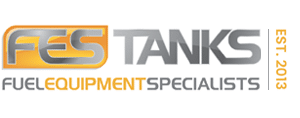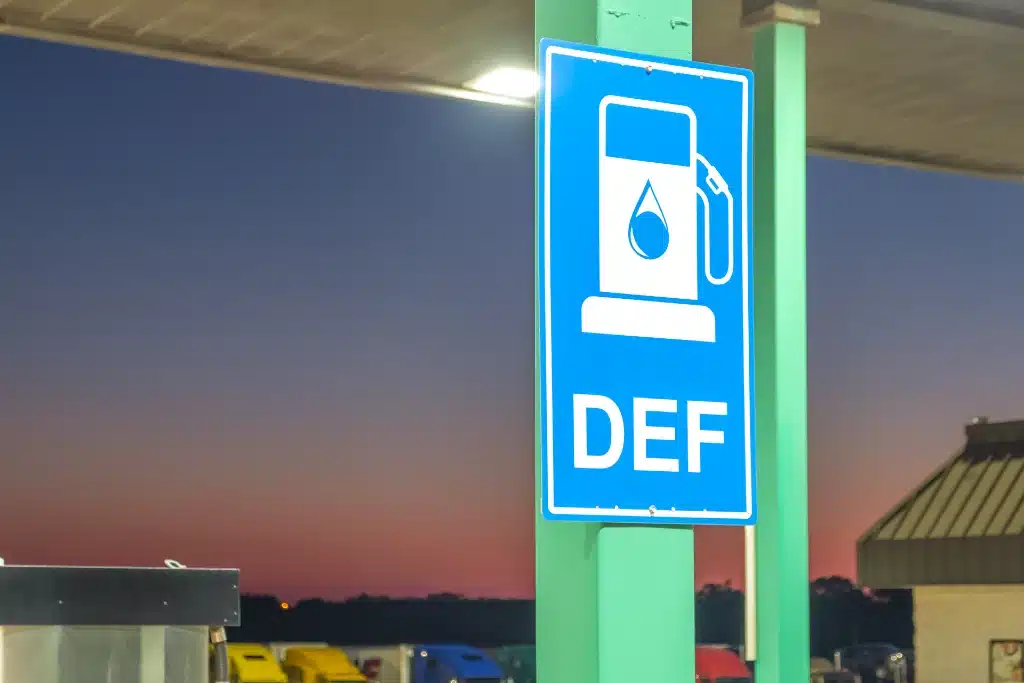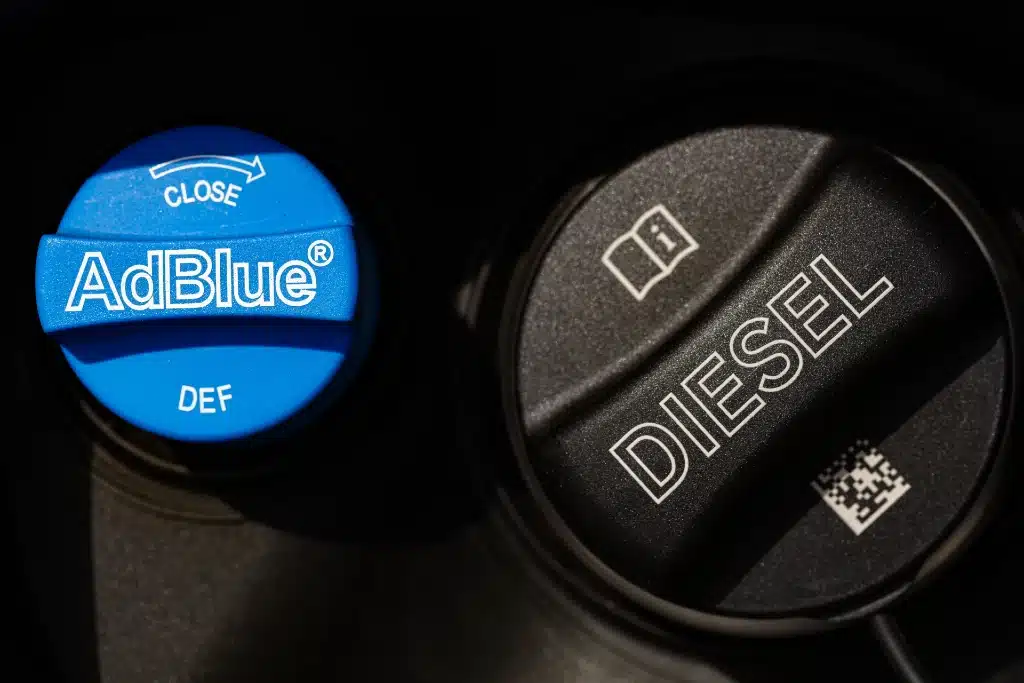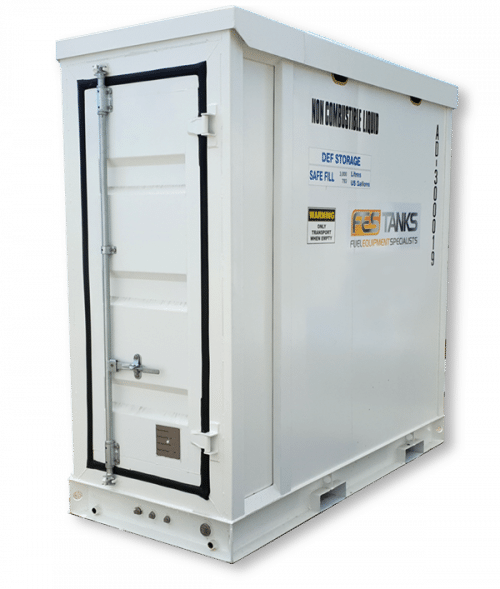In 2024 there were about 6.3 million diesel fuelled vehicles on Australian roads, accounting for around 30 per cent of all registered vehicles – and growing.
One of the drivers of that growth is road transport, with 630,000+ registered rigid trucks on the road nationally.
With those kinds of numbers in play and with Australia’s New Vehicle Efficiency Standard now in effect, it’s no surprise we are also major users of diesel exhaust fluid (DEF). Australia currently burns through about three million litres a year and growing, with most of that consumed by our long haul trucking fleets.
Given its critical importance for modern diesel engines, diesel exhaust fluid (DEF) is critical for the nation’s supply chain, including the mining and agriculture sectors. Supplies form an important part of our fuel security planning, with the government investing $49.5 million over four years from 2022 to boost local manufacture.
This means while AdBlue is still the most widely used DEF brand in Australia, there is growing competition from a number of other locally manufactured options.
But what’s the difference and how can you get the best value out of your DEF supply?
What is diesel exhaust fluid (DEF)?
DEF is a key component in lowering emissions from diesel engines and improving efficiency in modern diesel engines fitted with selective catalytic reduction technology.
It’s non-toxic, colourless and odourless and is made of a specific combination of urea and deionized water. Its chemical makeup sits at around 32.5 per cent concentrated urea and 67.5 per cent demineralised water, making it non-flammable and safe for the environment in the case of a spill.
Is DEF the same as AdBlue?
AdBlue is a registered trademark for a specific brand of diesel exhaust fluid and is owned by the German Association of the Automotive Industry (VDA).
It is primarily used in Europe and Australia.
Other brands of DEF are widely used in the United States, Canada, and other markets. Like AdBlue, DEF is composed of 32.5% urea and 67.5% deionized water, making it chemically identical to AdBlue.
In Australia, vehicles equipped with SCR technology can use any diesel exhaust fluid that meets the ISO 22241-1 standard for quality and purity and the AUS-32 specifications. This international standard ensures that the product is free from contaminants that could damage the SCR system.
Any fluid that complies with this standard can be safely used in any diesel vehicle equipped with SCR technology.
Importantly, DEF is not the same as water and urea solution, which can cause damage including build-up of calcium deposits, causing reduced efficiency and lost time.
How does DEF work?
Diesel engines generate high levels of nitrogen oxide – a serious pollutant with significant health risks. To meet emissions standards, manufacturers needed to develop more advanced catalytic conversion technology.
They did this by splitting the oxidation and reduction reactions across two steps, using a liquid reducing agent high in urea. DEF is manufactured to specific ISO standards to optimise this process.
Its active ingredient is the urea. The other key element is the de-ionised water, which means that mineral ions such as iron, chloride and sodium are removed. This is so the chemical reaction or catalyst is more precise.
In vehicles, DEF is stored in its own tank, separate from the diesel and is added to the outgoing exhaust gas by an automated dosing control system. When the fluid is sprayed into the exhaust system the water component evaporates, helping the urea spread evenly. The urea breaks into ammonia and carbon dioxide and as part of this, the NOx is converted by the ammonia into water and nitrogen.
Storing DEF
Since DEF is essential for reducing nitrogen oxide emissions, improper storage can have serious effects, not only for your fleet but also for your bottom line.
In harsh conditions like those in many parts of Australia, constant exposure to high temperatures can shorten the fluid’s shelf life and reduce its performance. This means higher maintenance costs. It can also mean increased vehicle emissions which can result in hefty fines.
The proper storage temperature for DEF is between -5°C to 30°C. Kept in a dry, shaded area, away from direct sunlight, it has a shelf life of 12 months plus.
Bulk storage is ideal for large fleets, helping reduce costs with bulk savings and fewer transport fees – particularly in regional areas. It also helps improve refuelling efficiency, particularly when operating from a central depot or dedicated refuelling hubs.
Preventing contamination
Contamination with even small amounts of dirt, fuel or other foreign particles can also spoil your DEF. To avoid this, it’s important to use well maintained storage tanks and dispensing equipment – ideally, pumps and hoses designed for DEF will minimise exposure to contaminants.
Using non-dedicated equipment can cause serious problems because even very small quantities of fuel/oil/lubricant can cause serious and expensive damage to your SCR system.
Purchasing your DEF from high-quality suppliers also ensures consistent quality. It’s a good idea to also test stored fluid regularly to check for impurities – this will keep your business compliant and protect your fleet, minimising the need for expensive downtime.
Top tips are:
- Choose the right tank. DEF is corrosive to aluminium which is why DEF tanks on vehicles are made from stainless steel or non-corroding, highly durable composite material.
- Check dispensing equipment. It’s important that seals, hoses, insulation and o-rings are made from quality materials that won’t react with the product. It’s also important to regularly test and clean dispensing equipment for crystallisation and to check nozzles are in full working order and won’t jam or remain open for too long.
- Watch the temperature. Store DEF within a temperature range between 0 and 30°C. Ensure the product is protected from direct sunlight and properly sealed when not in use. Evaporation due to storage in hot conditions can cause evaporation and change the water-urea mix.
- Test for quality. DEF can be stored safely for about 12 months. If you need to store it for longer it’s important to check it before use to ensure it still meets specifications. If the liquid is cloudy, don’t use it.
The F.E.S Tanks solution
Your storage tank is the frontline of defence to keep DEF in top condition and protect your vehicles.
Even a small amount of contamination – including traces of diesel, oil or rust – can lead to serious issues.
F.E.S Tanks offers standalone DEF tanks in sizes from 3,000-20,000 litres featuring self-bunded design and stainless steel construction, mechanical overfill protection valve, easy maintenance to internal tank with removable lid and forklift lifting points for easy relocation.
For a cost-effective refuelling solution for modern diesel fleets, the F.E.S range also includes integrated AdBlue/diesel tanks that keep installation costs down while making optimum use of space.
The F.E.S. range of integrated DEF/diesel Grande tanks come in sizes up to 110,000 litres (10,000/100,000) and are designed to handle larger storage requirements – ideal for depots and to service the needs of transport fleets.
Ask the experts about F.E.S DEF storage and dispensing solutions by calling 1300 651 391.



